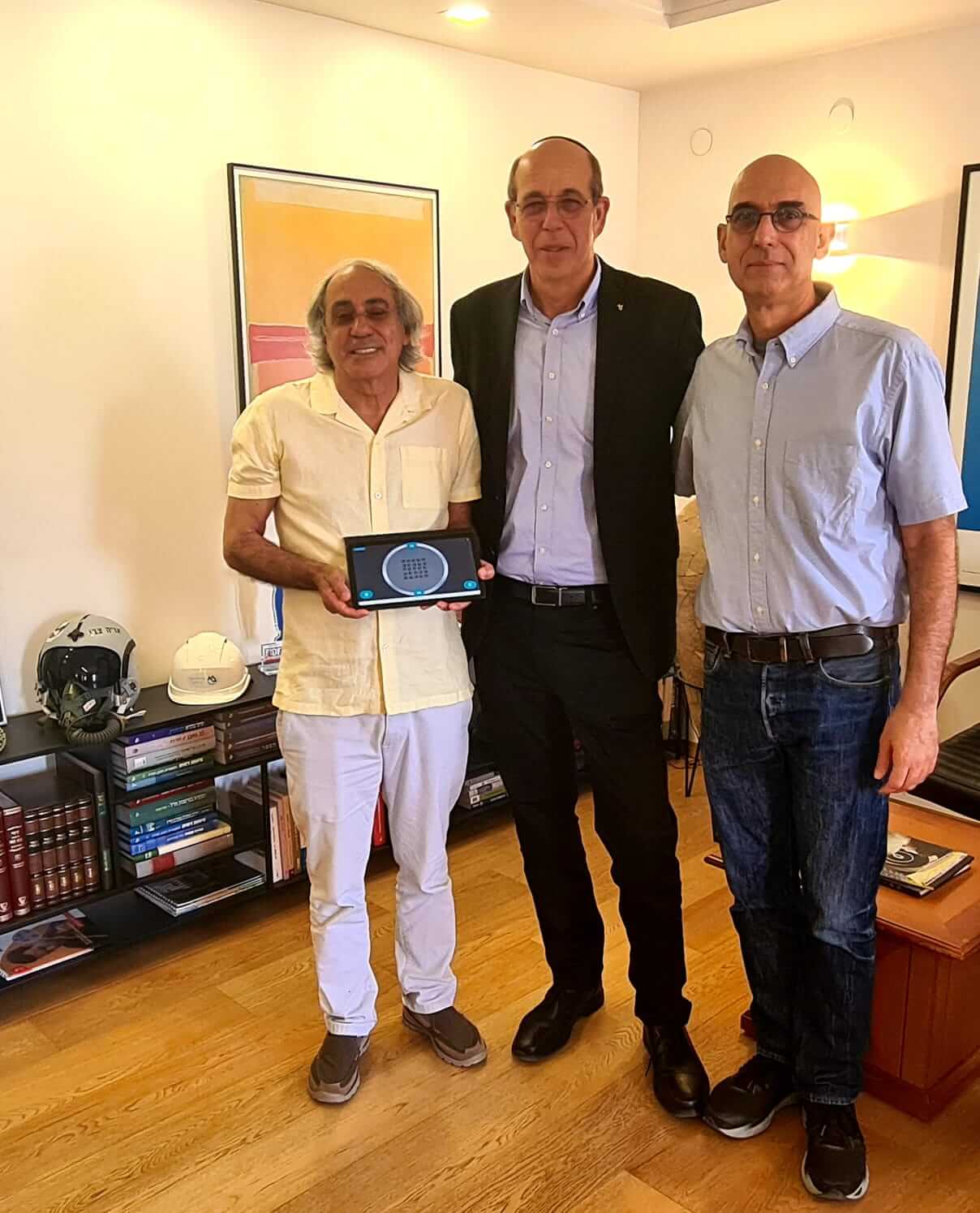A digital vision test was chosen as one of the Israeli technologies to be tested during the second Israeli's stay in space In space, Eitan Stiva * The technology that is based on an application was selected by the scientific committee of the celestial space mission

Prof. Uri Polat, Head of the School of Optometry and Vision Sciences and Prof. Yossi Mandel, Head of the Ophthalmic Science and Engineering Laboratory at Bar-Ilan University, use a digital vision test that is done on a tablet and allows for the detection of slight changes in functional vision during space flight. They teamed up with Dr. Eran Shankar, the medical director of the Israel Institute of Space and Aviation Medicine and together they adapted the technology so that it would be possible to monitor the vision status of astronauts in space missions.
Prolonged exposure to microgravity conditions during space missions can impair vision and cause neuro-ocular syndrome. Symptoms reported by astronauts who have been in space include decreased vision, changes in the optic nerve, retina, and change in refractive error.
Using the digital vision test that is done on a tablet, Bar-Ilan University researchers will be able to test the changes in the vision of the second Israeli astronaut, Eitan Stiva.
The technology used by the researchers from Bar-Ilan was chosen to take part in the "sky" space mission and its purpose is to examine the effect of microgravity conditions on the function of vision.
Prof. Uri Folat from Bar-Ilan University: "The technology is based on an available application that can be downloaded to any tablet. During Eitan Stiva's stay in space, we will be able to remotely examine his vision and understand at what point in time changes in vision occur. The results of the study will make it possible to draw conclusions about the neuro-ocular injury in space and will be a breakthrough in the treatment of this risk."
Dr. Eran Shankar, the medical director of the Israel Institute of Space and Aviation Medicine, congratulates the Space Agency of the Ministry of Science and Technology and the Ramon Foundation for approving Bar Ilan University's project: "I have no doubt that Israeli research will greatly contribute to the understanding of the functions of vision in zero gravity and will greatly assist In planning long-term space missions to the Moon and Mars".
More of the topic in Hayadan:
- The second Israeli on the way to space announced President Rivlin, the Ramon Foundation and the Ministry of Science
- Three experiments from the Technion will be launched to the International Space Station
- Leukemia treatment, a space telescope, the reconstruction of an experiment by Ilan Ramon - among the experiments that will be carried out in the sky mission
- The Innovation Authority is launching a new route to encourage and promote innovation and R&D in Be'er Sheva
- Researchers at Ben-Gurion University present a new method for diagnosing neurological and psychiatric diseases
